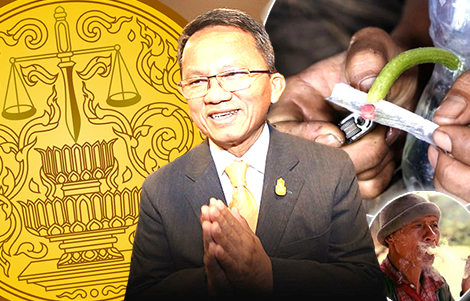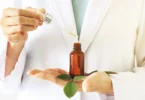Thailand has, for over two years, pursued a liberalisation programme to make medical extracts of cannabis available to those in need and is now further loosening the regime for other drugs for medical, scientific and government use. However, apart from the Kratom leaf, recreational use of drugs in Thailand will remain strictly illegal and can land anyone in deep trouble with police authorities.
The possession and recreational use of cocaine and marijuana remains strictly illegal in Thailand despite moves to liberalise the availability of the controlled substances for medical and research use, which is proceeding apace in the kingdom.

The Thai Justice Minister, Somsak Thepsuthin, has issued a statement to confirm that cocaine, cannabis, opium and morphine are still illegal in Thailand after confusion following a notice published this week in the official Royal Gazette.
The move by the minister follows a request for clarification from the Ministry of Digital Economy and Society after the government’s fake news centre was confronted with a large wave of messaging online suggesting that use of the strictly controlled drugs had been decriminalised.
Statement by the Justice Minister this week
On Wednesday, Justice Minister Somsak made it clear that any possession or dealing in the drugs was illegal and subject to legal sanctions and that the full rigour of the law would be applied against those found breaching the country’s tough and punishing anti-drug laws.
He confirmed that cocaine remains a Class Two narcotic under Thailand’s legal regimen.
Minster Somsak also made it clear that marijuana or cannabis remains a controlled and illicit substance or Class 5 drug although a range of government measures and initiatives have been put in place to make it available to those who require extracts of the drug for medicinal purposes or scientific research.
Kratom leaf use is to be decriminalised but controlled use of the natural stimulant is to be legislated for by the government in due course
The minister did, however, confirm that the possession of Kratom will become legal after the natural plant stimulant is removed from the category 5 listing of prohibited drugs.
He pointed out that, currently in Thailand, 135 villages or areas have been designated where the cultivation of the leaf and its use is entirely legal.
However, once the kratom leaf is decriminalised as a drug, the government will introduce legislation to regulate and control its use in the kingdom.
For instance, it is envisaged that the leaf will not be sold to people who are underage and its growth and production will be licenced by the government.
The minister noted that studies have shown that the consumption of the leaf, by chewing or it being boiled in water as a brew, have shown no harmful health effects on people where the quantity used is less than 20 leaves per day.
Tougher line on cannabis with recreational use of the class 5 drug remaining a serious criminal offence
The minister was adopting a tougher line when it comes to cannabis or marijuana. Mr Somsak said he saw the drug in two ways, one where it is of medical benefit to a growing cohort of people and must be made freely and more easily available.
The other was its use as a recreational drug which is still strictly illegal in Thailand and will remain so.
This includes unregulated or unlicenced cultivation of the drug as well as its sale and distribution to the public.
Swirling and false rumours online
Earlier in the week, the Ministry of Digital Economy and Society issued a warning to users online making false or unsubstantiated claims about the use, production and sale of illicit drugs.
In the last five years, as calls have grown and legal relief has been introduced, for instance, for the production and distribution of cannabis to those in medical need, a litany of criminal arrests and criminal prosecutions have followed against those arrested and charged with serious drug distribution offences who have subsequently claimed, unsuccessfully, to police that they were under the impression that their activities were legal.
Lurking danger to those violating Thailand’s tough anti-drugs regime and laws has seen many jailed
This is particularly so for the production of unlicensed marijuana or cannabis and its sale through online channels which are a growing and completely illegal business in Thailand.
The kingdom still retains some of the stiffest laws in the world on the use of controlled or illicit drugs.
Foreigners either living or visiting Thailand are warned to stay clear of the substances or those involved with them in any way. It can only lead to unpleasant experiences and sometimes severe consequences.
Many expats and even tourists, over the decades, have been charged and sentenced to long prison terms in the harsh Thai corrections system after dabbling in drugs or being implicated in their distribution.







